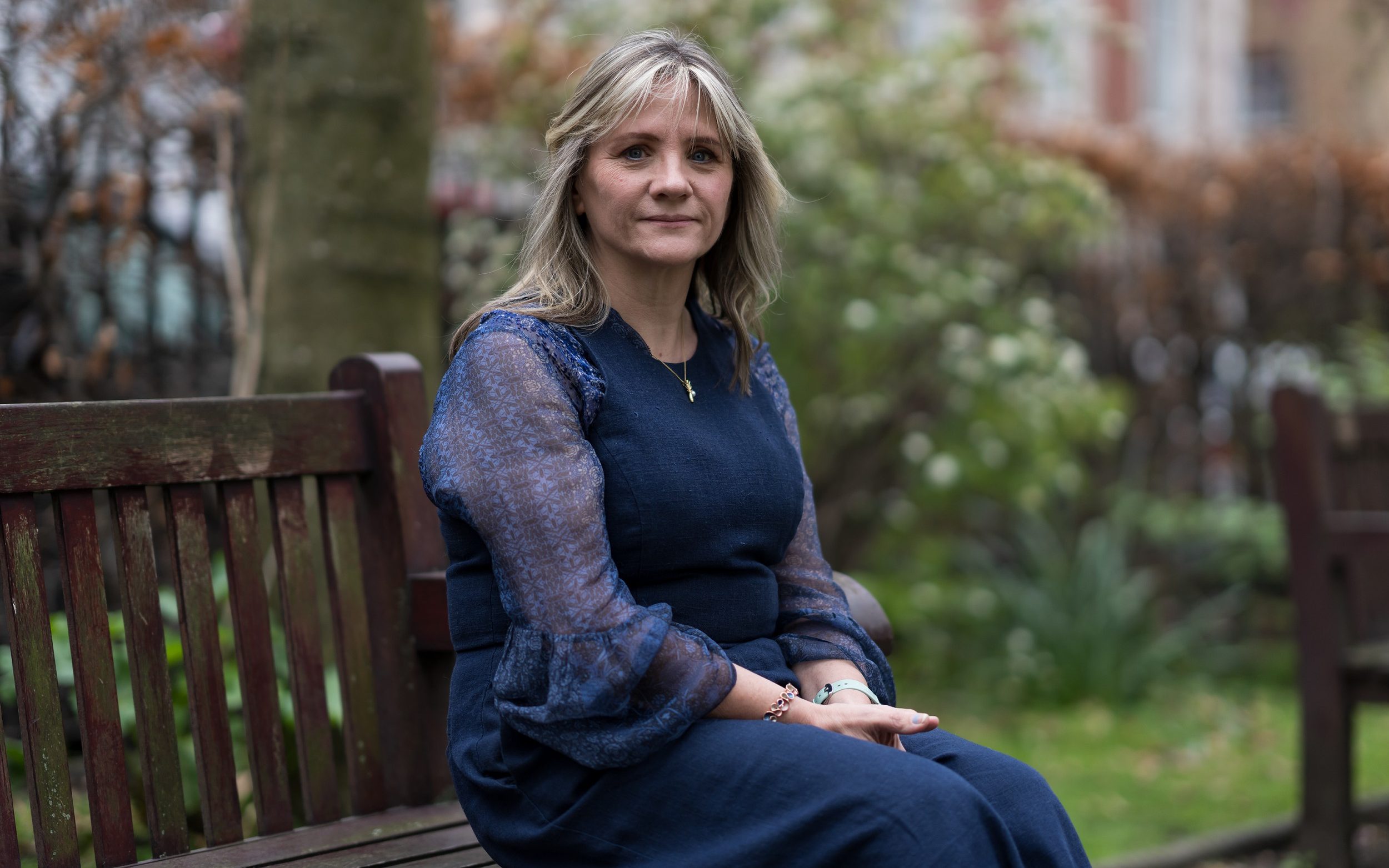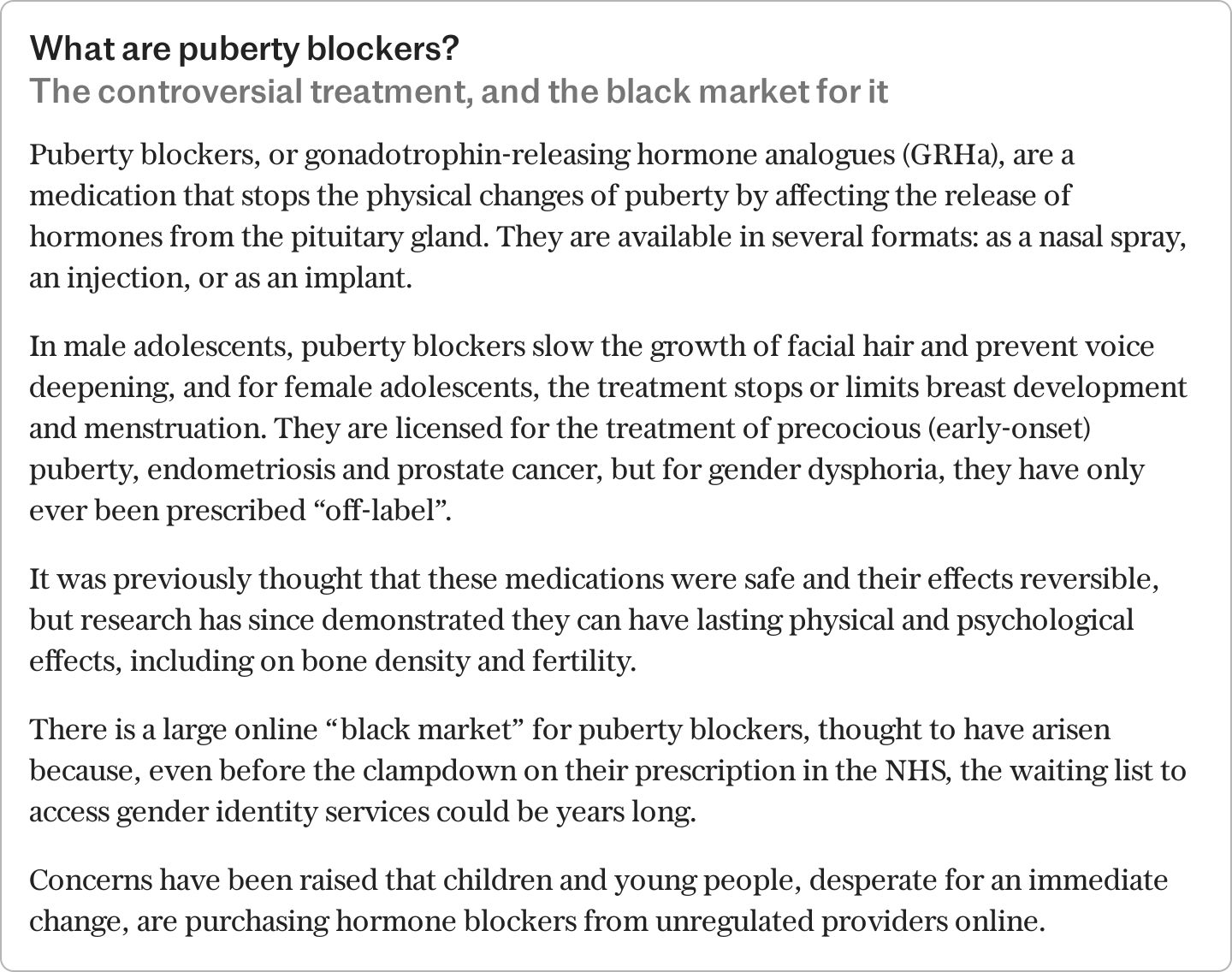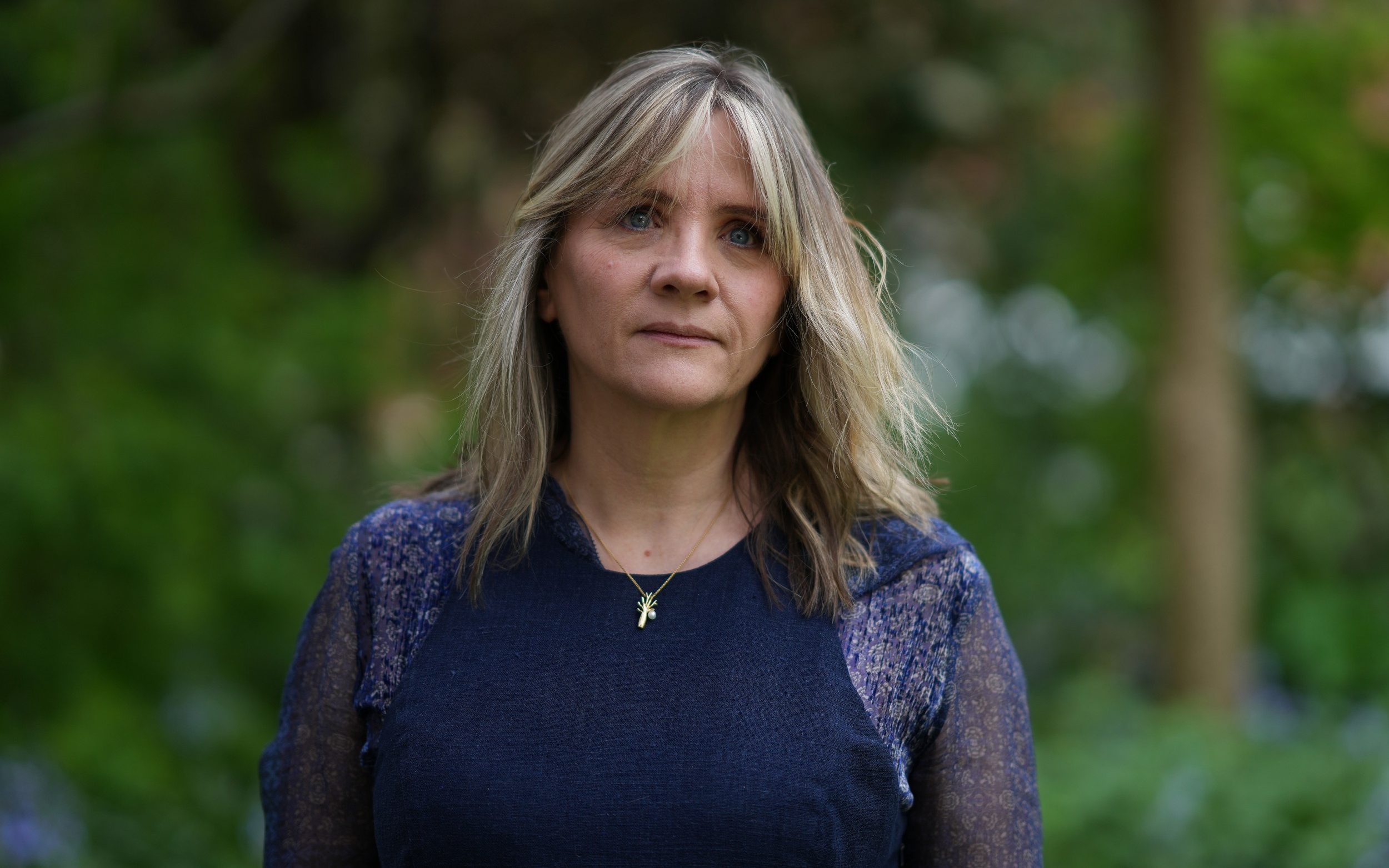
Professor Sallie Baxendale in London – Christopher Pledger/The Telegraph
Professor Sallie Baxendale did not set out to challenge the orthodoxy on puberty blockers; her usual area of research is epilepsy. When Baxendale, a consultant clinical neuropsychologist in London, first read the claim that the controversial drugs were safe and reversible, “my first thought was, this is really exciting”, she says. “That doesn’t fit in with my understanding of how the brain works, so I want to go and see what the new evidence is… and I just couldn’t find any.”
Prof Baxendale’s foray into this hotly contested area was accidental – the product of professional curiosity rather than an ideological agenda. Puberty blockers were not a topic of interest for her until she read, several years ago, that their effects were wholly reversible, a claim that was, at one point, on the NHS website and is still repeated by the transgender charity Mermaids.
“From a neuropsychology point of view, [pubertal suppression] is really interesting,” she says, speaking on the phone from her office at the UCL Institute of Neurology. “We know that puberty is an important time in neurodevelopment, and we know that when it gets interrupted by other things, there are impacts on cognitive development.” If there were a way round that, it could potentially have ramifications for Baxendale’s other work.
She was appalled to find an absence of evidence showing that the cognitive effects of puberty blockers were fully reversible, even though this was a treatment that had been adopted worldwide and was available on the NHS. “There is no evidence, because nobody’s looked at it,” she says. “People were really looking at puberty just from the development of sex organs and physical changes. But from a neuropsychological perspective, puberty is really important for cognitive development – in adolescence, the brain undergoes all sorts of changes.”
But when Baxendale came to publish her review of the existing literature on the subject, she found it was an academic hot potato, rejected by three journals. As is usual, her analysis was subject to anonymous peer review processes before publication, but in each case she found herself criticised by the reviewers and the analysis was turned down. She claims this was “nothing to do with the way I’d conducted the study” – it was rejected because “they did not like the findings”.
“The reasons given for rejecting it were quite extraordinary,” she says. “One was ‘this will stigmatise an already stigmatised group’… One [review] criticised me for using the terms ‘male’ and female.’… That’s what was so, so different compared to all the other papers I’ve published.” Anonymous reviewers cast aspersions about her motivation for exploring the topic in the first place.

Baxendale is certainly not the first researcher to find herself caught in the crossfire of the most toxic argument in academia, but says her case highlights how, when it comes to gender medicine, “enthusiasm for treatment has overtaken the evidence”.
Others in the field agree. Last month, the Dutch parliament ordered an investigation into the physical and mental health outcomes of children given puberty blockers – a dramatic about-turn given that the Netherlands pioneered the use of these drugs in a treatment protocol that was copied in the UK and around the world after it was published in 1998.
Baxendale didn’t think her findings were controversial. “I didn’t think it was particularly earth-shattering,” she says. “It was basically, ‘We don’t know, we need to do some more research’.” She found that there had been more studies assessing the impact of puberty blockers on cognitive function in animals than in humans, and, in fact, most found that they had a detrimental effect.
“Critical questions remain unanswered regarding the nature, extent and permanence of any arrested development of cognitive function associated with puberty blockers,” she concluded. “The impact of pubertal suppression on measures of neuropsychological function is an urgent research priority.” She did not say puberty blockers should not be prescribed – just that there had not been enough research into their cognitive effects.
Campaigners insist that puberty blockers can form part of “holistic and supportive healthcare for trans youth”. Mermaids, the transgender charity, has claimed that denying a child’s right to change their gender identity could increase the risk of suicide.
But the small number of studies that have assessed the impact of the drugs on children are flawed, Baxendale says. “No human studies have systematically explored the impact of these treatments on neuropsychological function with an adequate baseline and follow-up.” One credible piece of research – based on a single case study – actually found that puberty blockers caused an overall drop in IQ of 10 points. “You can’t say something is safe and reversible if you haven’t tested it to be safe and reversible,” she says.

‘These people deserve evidence-based care,” says Prof Baxendale – Christopher Pledger/The Telegraph
When Baxendale’s research was published in February this year, she faced an online backlash. “It has been quite distressing,” she says. “I’ve been called a eugenicist, an anti-trans activist, and I’m not even on social media.”
Baxendale would do more research in the area were it not for the abuse she’s received since publication. “I would like to look at this again, but I would be quite wary of bringing other people onto the team early in their careers, because I wouldn’t want them to be associated with the accusations of bigotry and transphobia.”
Her academic colleagues were quietly supportive. “Lots of people reached out and had stories, said ‘I’m very concerned’, but none of them would go public and say that – because they see what happens when you do,” she says.
“I can see how younger researchers would run a mile from this. It’s really really unpleasant… when all you’ve done is write a paper to help the people they say you want to harm. That will really put people off doing research, and that’s what’s so desperately needed.”
With the publication of the landmark review into gender-identity services for young people by Dr Hilary Cass this week, Baxendale is vindicated, as are the other academics who have gone against what was prevailing wisdom on the treatment of young people seeking gender reassignment.
The review concluded that the current treatment pathway for gender dysphoric young people is based on “remarkably weak evidence”. Its findings have led to a decision by NHS England to stop prescribing puberty blockers outside of clinical trials, but they remain available off-label via private prescriptions at non-NHS gender clinics.
The now-defunct Gender Identity Development Service (GIDS) at the Tavistock and Portman NHS Foundation Trust began prescribing puberty blockers to children as young as 12 on a trial basis in 2011.
In 2014, access to the drugs shifted from research-only to being available in general clinical practice, and GIDS lowered the prescription age from 16 to 11 – despite its own research finding they do not improve psychological wellbeing for distressed children as previously claimed. The clinic’s director praised them on a CBBC programme, saying: “The good thing is, if you stop the injections, it’s like pressing a start button and the body just carries on developing,” despite concerns about irreversibility.
Baxendale hopes the Cass Review is a step in the right direction. “It was really clear that research needs to be embedded into the new services,” she says. “These people deserve the same as everybody else: evidence-based care. When any group becomes exceptional and the rules start to not apply – that’s when medicine goes off the rails.”
Play The Telegraph’s brilliant range of Puzzles – and feel brighter every day. Train your brain and boost your mood with PlusWord, the Mini Crossword, the fearsome Killer Sudoku and even the classic Cryptic Crossword.
News Related-
Window opens for Zahid to ride off into the sunset – but at Anwar's cost
-
Murder-accused teens 'had preoccupation with torture'
-
A plea for Islamic voices against using human shields - opinion
-
Strengthen MM2H programme, promote multiple entry visa
-
GEG element removed from anti-smoking Bill
-
Health Ministry tables revised anti-tobacco law, omits generational smoking ban
-
Work together with Anwar to tackle economic issues, Perikatan MP tells Muhyiddin and Ismail Sabri
-
Malaysia Airlines launches year-end sale
-
Dr M accuses govt of bribery over allocations
-
Malaysia to check if the Netherlands still keen to send flood experts
-
Appeals court to rule in Isa’s graft case on Jan 31
-
Elephants Trample On Axia With Family Of Three Inside
-
Sirul fitted with monitoring device
-
Nigerian airliner lands at wrong airport
